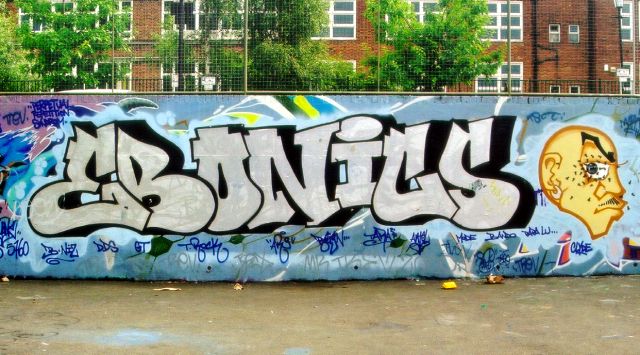Ebonics (Also called Black English, Black English Vernacular, Black Vernacular English or African American Vernacular English) is a nonstandard form of American English characteristically spoken by African Americans in the United States.
It is a term originally intended to refer to the language of all people descended from Black African slaves, particularly in West Africa, the Caribbean, and North America. Over time, and especially since 1996, it has been used more often to refer to African American Vernacular English (distinctively nonstandard Black United States English), asserting the independence of this from (standard) English.
What is claimed to be the initial mention of "Ebonics" was made by the psychologist Robert Williams in a discussion with linguist Ernie Smith (as well as other language scholars and researchers) that took place in a conference on "Cognitive and Language Development of the Black Child", held in St. Louis, Missouri, in 1973. In 1975, the term appeared within the title and text of a book edited and co-written by Williams, Ebonics: The True Language of Black Folks. Williams there explains it:
A two-year-old term created by a group of black scholars, Ebonics may be defined as "the linguistic and paralinguistic features which on a concentric continuum represent the communicative competence of the West African, Caribbean, and United States slave descendant of African origin. It includes the various idioms, patois, argots, idiolects, and social dialects of black people" especially those who have adapted to colonial circumstances. Ebonics derives its form from ebony (black) and phonics (sound, the study of sound) and refers to the study of the language of black people in all its cultural uniqueness.
Other writers have since emphasized how the term represents a view of the language of Black people as African rather than European. The term was not obviously popular even among those who agreed with the reason for coining it: it is little used even within Williams's Ebonics book, in which "Black English" is the far more common name.
John Baugh has stated that the term Ebonics is used in four ways by its Afrocentric proponents. It may: be "an international construct, including the linguistic consequences of the African slave trade";refer to the languages of the African diaspora as a whole;or it may refer to what is normally regarded as a variety of English: eitherit "is the equivalent of black English and is considered to be a dialect of English" (and thus merely an alternative term for AAVE), or it "is the antonym of black English and is considered to be a language other than English" (and thus a rejection of the notion of "African American VernacularEnglish" but nevertheless a term for what others term AAVE, viewed as an independent language and not a mere ethnolect).


.gif)

No comments:
Post a Comment
Note: Only a member of this blog may post a comment.